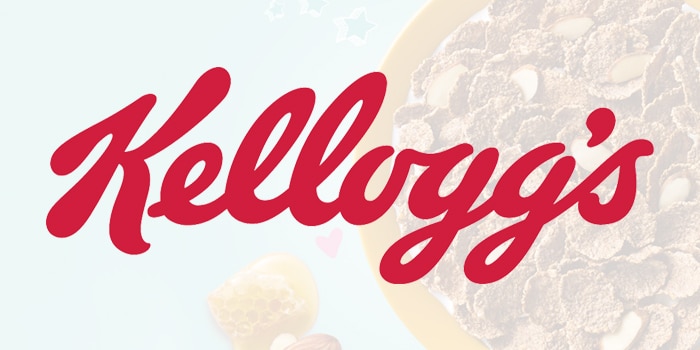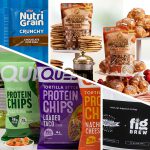Kellogg’s Q3: North American Sales Flat Amid Labor Strike, Supply Chain Setbacks

The Kellogg Company today reported flat sales across North America during the third quarter as its snacks and frozen segments grew while cereal sales took a hit from ongoing labor strikes and supply chain disruptions.
The company’s net sales were up 6% year-over-year, with organic net sales rising 5%, driven by strong volume in emerging markets like Africa, Russia and Brazil. Net sales in North America were stunted by volume declines in its cereal segment, which led to a 3% net sales drop for the quarter in that category. Still, several segments notched growth, with net sales up for both snacks (3%) and frozen products (3%). Within the latter, Kellogg’s plant-based brand MorningStar Farms secured an 8% boost over two years, “even as the category decelerates as expected,” chairman and CEO Steve Cahillane said.
Meanwhile, Kellogg’s away-from-home business is seeing “gradual recovery” while still below pre-pandemic levels, with convenience stores and school rebounding faster than vending, travel and lodging, he said.
“There is no question that today’s business environment is as challenging as we’ve ever seen it,” Cahillane said. “Our organization has risen to all of these challenges using creativity, skills and work ethic to manage through them.”
While yesterday Mondelez announced plans to increase prices by 6% to 7% in January across much of its portfolio, Kellogg’s chose not to comment on future pricing plans beyond its intention to “deploy revenue growth management.”
In addition to inflated costs and supply chain bottlenecks, Kellogg’s has faced labor shortages as The Bakery, Confectionery, Tobacco Workers and Grain Millers union (BCTGM) launched strikes across four cereal plants last month after stalled contract negotiations. The strikes have led the company to “recruit continuously…and execute contingency plans to sustain as much supply as possible in the face of open positions and work stoppages,” Cahillane said.
Kellogg’s and BCTGM resumed negotiations on Tuesday, but walked away without a deal. The union posted an update from its Negotiation Committee on its website after the meeting concluded yesterday, stating the company’s offer “did not achieve what we were asking.”
“The company said they would get off their [two-tier wage system] and get to a pathway, but they could not find a fully benefitted way to achieve this,” the post said. “With this issue, we were unable to address the other items that are still on the table. We cannot recommend this offer and will not bring it back for the membership to vote on. We agreed that we will not have concessions and that is all their last offer was.”
Cahillane said Kellogg’s offer includes “increased compensation on top of already industry-leading compensation and benefits.” He also claimed the company is “not asking to take anything away, despite what you may have heard.”
“We think a fair resolution should be in the offing,” he said. “This would allow our employees to get back to work. We want them back to work. I think they want to be back to work. We’re hoping that we’ll come to a reasonable conclusion and that’s what we’re working towards.”
Despite uncertainty in its North American business, the company improved its full year net sales outlook, with organic net sales growth now expected to be 2% to 3%, up from its prior 0% to 1% guidance, though CFO Amit Banati expects results to fall within the lower end of that range. The guidance also assumes a “reasonable conclusion” to the labor strikes, he said.
“We’ve got big challenges in front of us, but we’re quite confident that we’re not going to be at a long term or any kind of permanent disadvantage,” Cahillane said. “This is a transitory event. And we’ll work our way through it.”
















